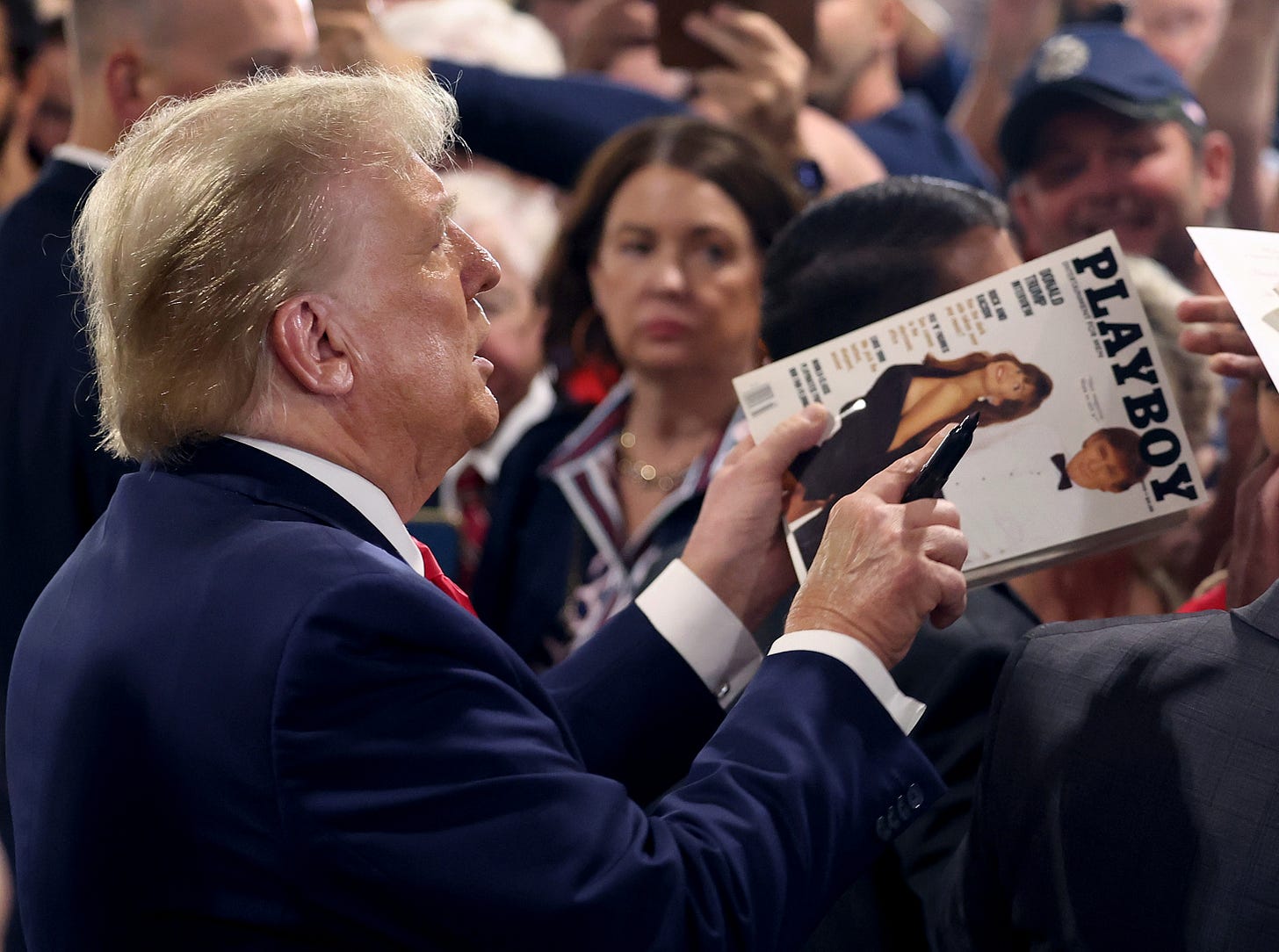The Agony of the Pro-Life Intellectual
Trump has put anti-abortion activists and their journalistic allies on the spot

When Donald Trump threw the pro-life movement under the bus in his appearance on “Meet the Press” just over a week ago—claiming Republican officeholders were hurting the party’s electoral prospects by imposing draconian restrictions on the procedure—I felt a shudder of schadenfreude. At first I thought the feeling was mainly a function of the Republican frontrunner getting into a messy, very public spat with single-issue activists in his own electoral coalition. That’s something Democrats contend with all the time, and it was nice to see the GOP for once struggling to rein in those attempting to push the party to embrace unpopular positions. (Josh Barro wrote a strong post about that dimension of the story, urging Joe Biden to follow Trump’s example by picking some public fights with activists on his own side.)
But then I realized the feeling was about something more.
Elites v. the Voters
I’m (moderately) pro-choice, but I have a lot of respect for people passionately committed to the pro-life cause. More precisely, I have a lot of respect for conservative intellectuals who are passionately committed to the pro-life cause. People like Ross Douthat, David French, Peter Wehner, and Alexandra DeSanctis—all of whom favor what might be called a holistic pro-life agenda, one that would combine strong restrictions on abortion with enhanced support for pregnant women and struggling single mothers, plus generous government programs for American families in the form of something like the child benefit Utah Sen. Mitt Romney proposed in the early days of the Biden administration.
If that were the official position of the Republican Party, I would still be pro-choice and still vote for Democrats, but the politics surrounding abortion would be somewhat less polarized and poisonous, which would be a very good thing for the country.
But here’s the thing: This is not the position of the Republican Party. Not even close. And yet the conservative intellectuals I listed above write and speak as if it were—or at least as if it’s likely to become so, shortly after they write yet another op-ed making the case in its favor.
This points, I think, to a certain unreality on the American right. The intellectuals (or at least some of them) are nuanced in their thinking, humane in their sensibilities, keen to avoid cruelty and alleviate suffering, and willing to use government (at least sometimes) to attain that end. But the party’s officeholders and the rank-and-file voters who put them there are prone to extremism, indifferent to (and sometimes appear actively to delight in) cruelty and suffering, and unwilling to use government to make anyone’s life any easier.
Keep reading with a 7-day free trial
Subscribe to Notes from the Middleground to keep reading this post and get 7 days of free access to the full post archives.


